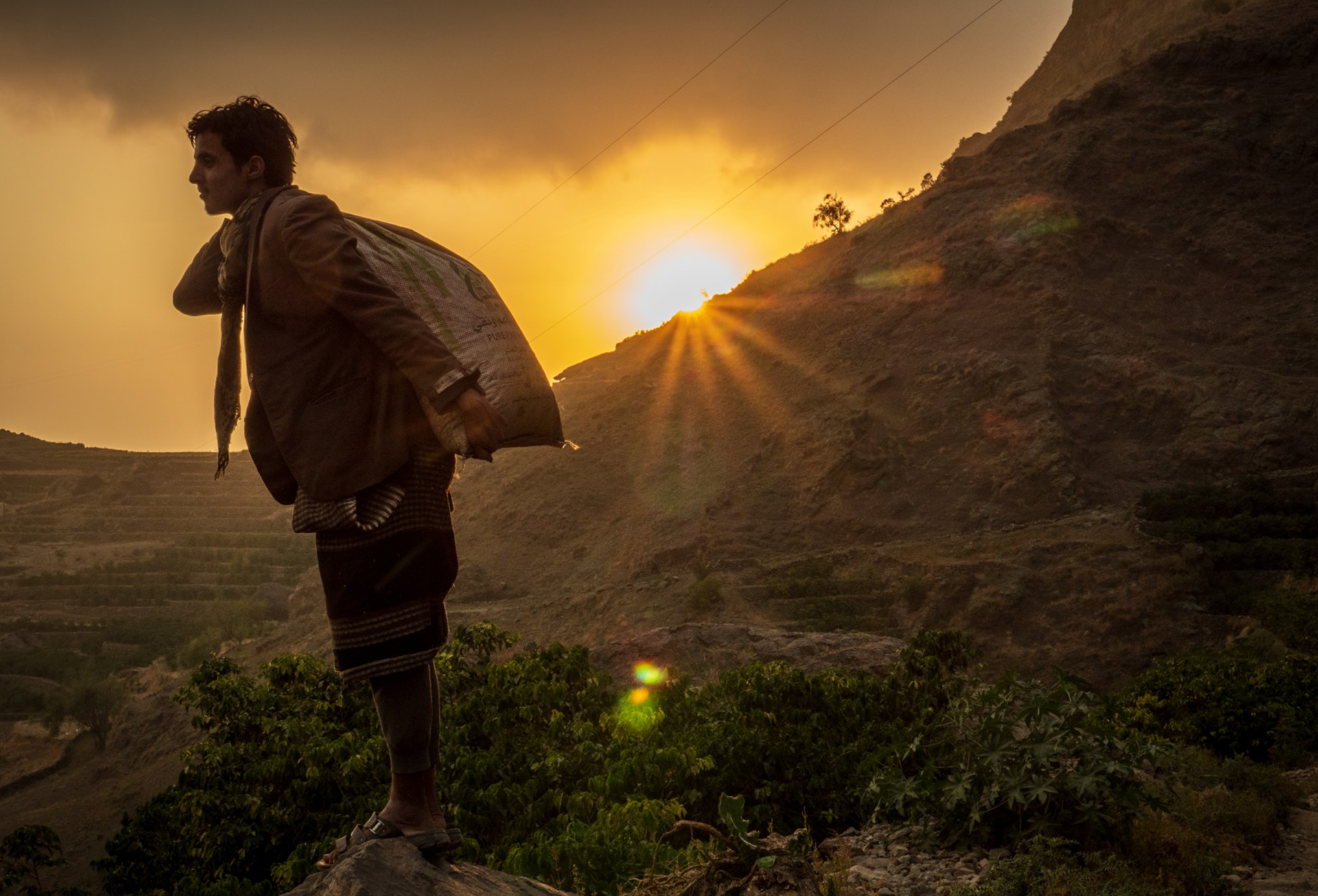The seeds of coffee were planted in my family long before I was born. My grandfather was born in 1931 to a simple rural family in the village of Sheibani, central Yemen. He worked as a shepherd until the age of 13, when he left the village and ventured into the thriving city of Aden to make a life and living for himself and his family. At the age of 17 he opened a small shack serving tea and coffee. The shack became a shop and the shop became a business. Fast forward a few decades, and the business would grow to become a manufacturing group that was as respected for its business acumen, as it was for its philanthropic vision. The most fascinating aspect of his business was not its commercial flair, but it’s ethos of social impact. My grandfather would live on the principle that ‘we are makers of lives, not trade’ – and I grew up seeing him using his business as a vehicle of positive change in his community and society. He supported thousands of livelihoods and impacted tens, if not hundreds, of thousands. He built schools, clinics and roads throughout the country. And this was all way before it was cool for businesses to be “ethical”. The term “social enterprise” hadn’t even been coined yet.
Growing up, I carried deeply within me his ethos of ‘making lives, not trade’. Born and raised in the UK, yet frequently visiting Yemen, I became acutely aware of the inequality that exists between the “developed” and “developing” worlds. Growing up in both, I was disturbed and infuriated at how different the human experience was in those two worlds –and much of it was down to the lottery of birth. The anger and indignance would eventually transform into a deep desire to commit my life to reducing the inequality that exists around us. I always imagined this ‘life-making’ would manifest in me operating between the “developed” and “developing” worlds and somehow connecting the two.



That path initially led me to pursuing a successful career in energy for several years, working on designing and building energy development projects in the Middle East and East Africa. I had a long term plan of utilising my knowledge and experience in energy to improve the lives of people through building basic power infrastructure in developing countries.
In March of 2015, Yemen fell into a complex, drawn out, destructive war. The conflict brought a country that was already amongst the world’s poorest to its knees, and pushed it to virtual collapse. With war breaking out, my plans of developing energy projects would no longer be possible for decades ahead. Yet seeing the impact of the conflict on people I knew and loved, I felt compelled to seek out an alternative and more immediate way to support Yemen and Yemenis at their moment of greatest need.
After months of studying Yemen’s social and economic history, I stumbled upon its fascinating history with coffee. Yemen was the first country in the world to trade coffee. The first time a human being farmed and cultivated coffee was in Yemen. And Yemen was recognised as a source of exceptional quality coffee. There it was - my “aha” moment. Coffee would be my vehicle of connecting the two world’s I grew up in, and changing lives in the process. On the one hand; coffee was a beautiful crop that was grown for centuries by farmers, and represented a symbol of pride and a source of income. On the other hand; it was a beautiful beverage consumed and enjoyed in the coffee drinking world. A world in which good coffee could be rewarded for its quality and uniqueness.
Within months, I had resigned from my job, and found myself traveling around Yemen, sharing my simple vision with groups of farmers across the country. Qima grew from working in one community in Yemen to over 55 communities throughout the country. With the desire of growing our impact globally, Qima expanded its sourcing operations beyond Yemen to serve equally deserving and committed coffee farmers, and established Qima Colombia in 2021 and Qima Ecaudor in 2022. Today Qima Coffee is recognised globally as a leading ethical coffee sourcing business, sourcing coffee from almost 5000 farmers worldwide, and serving roasters and cafes in over 40 countries.
Qima Café was launched in September 2022 to act as a space to showcase and explore our vision for coffee to, and with the public. The café will serve as a creative space in which we will work with consumers, professionals, farmers and partners alike to explore the boundaries of coffee experiences, and identify the challenges facing the coffee industry, with the ultimate aim of creating a more equitable and enriching industry.
Faris Sheibani
Founder

